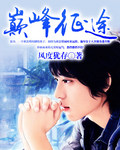LETTER 340
您可以在百度里搜索“The Works of Charles and Mary Lamb — Volume 6 艾草文学(www.321553.xyz)”查找最新章节!
LETTER 340
CHARLES LAMB TO BERNARD BARTON
[P.M. January 23, 1824.]
My dear Sir—That peevish letter of mine, which was meant to convey an apology for my incapacity to write, seems to have been taken by you in too serious a light. It was only my way of telling you I had a severe cold. The fact is I have been insuperably dull and lethargic for many weeks, and cannot rise to the vigour of a Letter, much less an Essay. The London must do without me for a time, a time, and half a time, for I have lost all interest about it, and whether I shall recover it again I know not. I will bridle my pen another time, & not teaze and puzzle you with my aridities. I shall begin to feel a little more alive with the spring. Winter is to me (mild or harsh) always a great trial of the spirits. I am ashamed not to have noticed your tribute to Woolman, whom we love so much. It is done in your good manner. Your friend Taylor called upon me some time since, and seems a very amiable man. His last story is painfully fine. His Book I "like." It is only too stuft with scripture, too Parsonish. The best thing in it is the Boy's own story. When I say it is too full of Scripture, I mean it is too full of direct "ations; no book can have too much of SILENT SCRIPTURE in it. But the natural power of a story is diminished when the uppermost purpose in the writer seems to be to recommend something else, viz Religion. You know what Horace says of the DEUS INTERSIT. I am not able to explain myself, you must do it for me.—
My Sister's part in the Leicester School (about two thirds) was purely her own; as it was (to the same quantity) in the Shakspeare Tales which bear my name. I wrote only the Witch Aunt, the first going to Church, and the final Story about a little Indian girl in a Ship.
Your account of my Black Balling amused me. I think, as Quakers, they did right. There are some things hard to be understood.
The more I think the more I am vexed at having puzzled you with that Letter, but I have been so out of Letter writing of late years, that it is a sore effort to sit down to it, & I felt in your debt, and sat down waywardly to pay you in bad money. Never mind my dulness, I am used to long intervals of it. The heavens seem brass to me—then again comes the refreshing shower. "I have been merry once or twice ere now."
You said something about Mr. Mitford in a late letter, which I believe I did not advert to. I shall be happy to show him my Milton (it is all the show things I have) at any time he will take the trouble of a jaunt to Islington. I do also hope to see Mr. Taylor there some day. Pray say so to both.
Coleridge's book is good part printed, but sticks a little for more copy. It bears an unsaleable Title—Extracts from Bishop Leighton—but I am confident there will be plenty of good notes in it, more of Bishop Coleridge than Leighton, I hope; for what is Leighton?
Do you trouble yourself about Libel cases? The Decision against Hunt for the "Vision of Judgment" made me sick. What is to become of the old talk about OUR GOOD OLD KING —his personal virtues saving us from a revolution &c. &c. Why, none that think it can utter it now. It must stink. And the Vision is really, as to Him-ward, such a tolerant good humour'd thing. What a wretched thing a Lord Chief Justice is, always was, & will be!
Keep your good spirits up, dear BB—mine will return—They are at present in abeyance. But I am rather lethargic than miserable. I don't know but a good horse whip would be more beneficial to me than Physic. My head, without aching, will teach yours to ache. It is well I am getting to the conclusion. I will send a better letter when I am a better man. Let me thank you for your kind concern for me (which I trust will have reason soon to be dissipated) & assure you that it gives me pleasure to hear from you.—
Yours truly C.L.
["The London must do without me." Lamb contributed nothing between December, 1823 ("Amicus Redivivus"), and September, 1824 ("Blakesmoor in H——shire").
Barton's tribute to Woolman was the poem "A Memorial to John Woolman," printed in Poetic Vigils.
Taylor was Charles Benjamin Tayler (1797-1875), the curate of Hadleigh, in Suffolk, and the author of many religious books. Lamb refers to May You Like It, 1823.
"What Horace says":—
Nec deus intersit nisi dignus vindice nodus
Inciderit.
Ars Poetica, 191, 192.
Neither let a god interfere, unless a difficulty worth a god's unravelling should happen (Smart's translation).
"My Black Balling." Elia had been rejected by a Book Club in Woodbridge.
"Coleridge's book"—the Aids to Reflection, 1825. The first intention had been a selection of "Beauties" from Bishop Leighton (1611-1684), Archbishop of Glasgow, and author, among other works, of Rules and Instructions for a Holy Life.
"The Decision against Hunt." John Hunt, the publisher of The Liberal, in which Byron's "Vision of Judgment" had been printed in 1822, had just been fined £100 for the libel therein contained on George III.
Here should come a note from Lamb to Charles Ollier, thanking him for a copy of his Inesilla; or, The Tempter: A Romance, with Other Tales.] The Works of Charles and Mary Lamb — Volume 6

